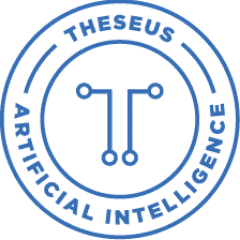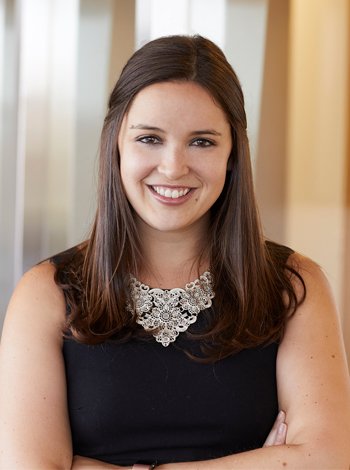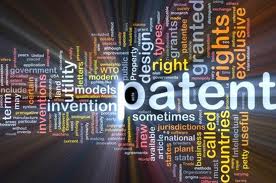 Stubbs Alderton & Markiles client Theseus AI, founded by a UCLA neurosurgeon that aims to address the costly medical problem of unnecessary spine surgeries, has negotiated an IP license agreement with UCLA. The license agreement with Theseus AI is for technology that was developed at UCLA that used AI to examine MRI scans of the patients' spines. The founder, Dr. Luke Macyszyn is a neurosurgeon at UCLA and he collaborated on the research with Bilwaj Gaonkar, a UCLA postdoctoral researcher in bioengineering
Stubbs Alderton & Markiles client Theseus AI, founded by a UCLA neurosurgeon that aims to address the costly medical problem of unnecessary spine surgeries, has negotiated an IP license agreement with UCLA. The license agreement with Theseus AI is for technology that was developed at UCLA that used AI to examine MRI scans of the patients' spines. The founder, Dr. Luke Macyszyn is a neurosurgeon at UCLA and he collaborated on the research with Bilwaj Gaonkar, a UCLA postdoctoral researcher in bioengineering
To read the full article and find out more about Theseus AI visit here.
SA&M attorney representing Theseus AI in this matter was Kevin DeBré .
Believe it or not, YouTube channels and podcasts are now major revenue earners, both for the creators who operate them and the advertisers who use them to generate business. However, digital media rights and disputes are largely untested in the legal realm and therefore come with questions and uncertainties.
YouTube channels and podcasts are generally not “owned;” however, they are comprised of various valuable things that can be held, controlled, and bought/sold. Channel access (i.e. login credentials and the right to advertising revenue) is necessary for operation and is sometimes controlled by an entity other than the creators. Without channel access, and access to supporting social media accounts, the channel cannot operate; however, access alone generates little, if any, revenue. The more valuable assets of a YouTube channel or podcast are the intellectual property it disseminates. This includes the channel/podcast name, character names and storylines (if applicable), and the actual library of videos/recordings created.
Intellectual property is frequently held by a legal entity formed by the content creators. The rights to that intellectual property can then be licensed or assigned to others as needed, such as with brand partnerships. However, if a holding entity is not created, the intellectual property is owned equally by all of the people who create the content. Courts may consider the co-creators a de facto partnership, but since these forms of media are new, this question has not been thoroughly reviewed by the courts, and ownership is uncertain. It is possible that the intellectual property is controlled by a majority vote of the co-creators or that anyone co-creator can control (or limit) the use of relevant intellectual property. To avoid this ambiguity, it is best to formalize the relationship between co-creators before substantial revenue is generated.
It is vital that content creators treat the channel/podcast as a business right out of the gate. Unless the channel is operated entirely by a single person, you will need to form a legal entity (typically a limited liability company or corporation) to control channel access and hold any intellectual property developed for the channel/podcast. In the event of a dispute, the governing documents of the entity will determine a resolution. To guide you in the process of forming a legal entity and deciding how revenue will be managed, it is helpful to seek the advice of an attorney and an accountant.
Additionally, each individual who contributes to the channel/podcast has the right to control the use of their name or likeness (their image and their voice). Individuals can demand that any content containing their name or likeness be taken down, even if it means removal of the full library. To avoid this issue, no matter how small their role, every person who appears on the channel/podcast should sign a release of any claim to their name/likeness with respect to the channel/podcast.
Companies are increasingly hiring YouTube channels and podcasts to create branded content, and navigating these relationships effectively is a regular part of doing business for any company that advertises. When negotiating the production of branded content, companies should request the opportunity to review the content before it is posted, and include a schedule for reviews and final delivery of assets. If the company intends to use any media created by the YouTube channel or podcast on its own website or social media channels, the company should obtain a license from the channel or podcast to use the content or have all rights to the content assigned to the company. The company should also audit the channel’s/podcast’s own business and intellectual property practices to make sure the content will not be removed for violating copyright law or misappropriating a person’s name or likeness.
Additionally, the Federal Trade Commission has become increasingly strict in its regulation of digital media advertising. It is the role of both business owners and content creators to ensure that all content follows the most recent FTC regulations. The primary goal of these regulations is to avoid consumer confusion. Companies must require the content creator to include adequate disclosures (ranging from the use of #ad in the description of a post to a full narrative introduction for a sponsored video or recording) with any sponsored content, and the company should review the content before it is posted to confirm that the proper disclosures have been made.
---------------------------------

Celina Kirchner is an associate in the Business Litigation practice area. Celina’s civil litigation practice focuses on all areas of business and commercial litigation, with a particular emphasis on digital media, technology, internet, privacy, emerging companies, insurance, breach of contract, fraud, and complex business disputes. In her practice, Celina works closely with business professionals of all levels in order to develop practical strategies for resolving their disputes. She also advises businesses on formation, governance and contracting matters in the hope that they can avoid litigation altogether. Having worked with clients of all sizes, Celina understands that every case is unique and, ultimately, comes down to people. She focuses on the human element of her cases and communicates in an understandable, business manner. In the end, Celina endeavors to make what can be a stressful time for her clients as smooth as possible. Celina is a frequent speaker at events centered around digital media and the burgeoning Silicon Beach community.
The information provided on this website does not, and is not intended to, constitute legal advice; instead, all information, content, and materials available on this site are for general informational purposes only. For more questions contact Celina Kirchner @
Stubbs Alderton & Markiles, LLP is pleased to announce that six lawyers have been named to the 2017 Southern California Super Lawyers. Super Lawyers is a rating service of outstanding lawyers from more than 70 practice areas who have attained a high-degree of peer recognition and professional achievement. The patented selection process includes independent research, peer nominations and peer evaluations.
Super Lawyers Magazine features the list and profiles of selected attorneys and is distributed to attorneys in the state or region and the ABA-accredited law school libraries. Super Lawyers is also published as a special section in leading city and regional magazines across the country. Lawyers are selected to a Super Lawyers list in all 50 states and Washington, D.C.
Stubbs Alderton & Markiles, LLP would like to congratulate the following attorneys named to the 2017 Super Lawyers list -
Scott Alderton is a founding partner of the Firm, Managing Partner, and a member of the Firm’s Executive Committee. Scott is co-chair of the Firm’s Venture Capital and Emerging Growth Practice Group and chair’s the Firm’s Interactive Entertainment and Video Games Group. Scott advises both public and private clients across a number of industries, including technology, manufacturing and distribution of goods in commerce, finance, the Internet, interactive video games, and new media industries.
Joe Stubbs is a founding partner of the Firm, and a member of the Firm’s Executive Committee. He is co-chair of the Firm’s Venture Capital and Emerging Growth Practice Group, and of the Firm’s Mergers and Acquisitions Practice Group. Joe practices in the areas of corporate and securities law, emphasizing the corporate representation of both publicly-held and privately-held emerging growth and middle-market companies, venture capital and private equity firms, angel investment groups and investment banks.
Michael Sherman is an accomplished trial lawyer in high-stakes, “bet-the-company” litigation, and has represented both large and early-stage companies as well as entrepreneurs in all facets of business and complex commercial litigation. He has evenly split his litigation practice on both the plaintiff and defense side of cases, has first-chaired numerous trials in complex matters in industries as varied as energy, securities, healthcare, environmental, consumer products, technology, project development/finance, advertising, real estate and apparel, and is highly skilled in class actions and unfair competition law.
Jeffrey F. Gersh is a Partner of the Firm. He has litigated, arbitrated, or mediated complex business and commercial matters, for both plaintiffs and defendants, whether individuals, public or private corporations, partnerships, limited liability companies and/or its members, shareholders and partners, involving various types of disputes, including contract matters, trade secrets, intellectual property (trademarks, copyrights and trade dress) negligence and fraud, employment, real estate, license agreements, the apparel and garment industry, and general business matters.
Kevin D. DeBré is the chair of the Firm’s Intellectual Property & Technology Transactions Practice Group. Kevin advises entrepreneurs and companies that use intellectual property to build their businesses. Kevin has particular expertise in structuring and negotiating technology commercialization and patent licenses, strategic alliances, research and development collaborations, trademark licensing and brand merchandising agreements and manufacturing, distribution and marketing arrangements. He also counsels clients on compliance with data security and privacy laws and regulations.
The official Super Lawyers 2017 publication can be read in its entirety here.
For more information about Stubbs Alderton & Markiles, contact Heidi Hubbeling at or (310) 746-9803.

1. What is intellectual property for purposes of this analysis?
a. Copyrights, literary, musical or artistic compositions or similar property are expressly identified under the Internal Revenue Code for special “non-favorable” treatment on sale by the creator.[1] Video games, books, movies, television shows all fall into this category of asset in the hands of the developer.[2]
b. Another class of intellectual property, including trade secrets, formulas, know how and other methods, techniques or processes that are the subject of reasonable efforts to maintain secrecy fall within the general class of intangible assets that may be treated as a capital asset on sale but are subject to special rules on the useful life over which to amortize the cost of the intangible asset, as discussed below.[3]
2. How is the developer or owner of intellectual property treated?
a. In general, self-created copyrights, literary, musical or artistic compositions are not eligible for capital gain treatment on sale.[4] As an example, the Tax Court has held that the concept for a television show was not eligible for capital gain treatment.[5]
b. Purchased intellectual property is generally eligible to be treated as a capital asset on sale unless the owner holds the intellectual primarily for sale to customers in the ordinary course of business, as in the case of a software or game developer selling individual, non-custom programs. The sale of the copyright and the code to the program would not be treated as capital gain in the hands of the developer but could yield capital gain if the copyright and the software had been purchased.
c. The exclusion from capital asset treatment does not necessarily apply to a self-created invention that can be patented[6]. The treatment on disposition of such assets may depend on whether the cost of development was capitalized and amortized or whether the development costs were expensed and deducted in the course of development as well as whether the asset is held for sale to customers (not a capital asset) or is used in the taxpayer’s business (in which case it may be eligible for capital gain/ordinary loss treatment).
d. A transaction in which the developer is compensated has to be analyzed to distinguish a license arrangement from a sale.[7] An agreement cast in the form of an exclusive license may be treated as a sale for tax purposes even if title remains with the grantor. The key question is whether the transferor retained any rights which, in the aggregate, have substantial value.[8]
3. How is the purchaser of intellectual property treated?
a. The purchaser of the intellectual property may capitalize and amortize the cost of developing the intellectual property if the intellectual property is to be used in the creator’s business.[9] Computer software is automatically accorded three year straight line amortization if the developer or purchaser opts to amortize the cost of the software.[10] If the development of the software qualifies as research and development in the laboratory or experimental sense, the costs are deductible currently.[11]
b. The purchaser of the intangible assets used in the purchaser’s trade or business (other than computer software as provided above) is permitted to amortize the cost of purchase allocated to most forms of intellectual property over 15 years on a straight line basis.[12] Section 197 assets include goodwill, going concern value, workforce in place, operating systems, information bases, customer based intangibles, vendor based intangibles, licenses, trade marks, trade names, and franchises.[13]
c. The purchaser of the stock of a company that owns intellectual property is subject to the treatment to which the company is already subject unless the purchaser and seller of the stock elect to treat the stock sale as an asset sale[14].
4. Sales and Use Tax. Of the states that impose sales and use tax, most impose the tax on the sale of tangible personal property. In California, the sale of a custom written computer program is not subject to sales tax.[15] In the case of the sale of a prewritten program to customers, the sales tax is imposed if the software is sold on compact discs or on other media stored in tangible form.[16] Software that the buyer downloads from a website and that is not otherwise delivered on tangible media is not a sale of tangible personal property subject to the California sales tax.[17]
5. Conclusion. The tax treatment of intellectual property is determined by the nature of the intellectual property and how the taxpayer obtained the intellectual property. The cost of developing self-created intellectual property may be eligible for immediate expensing or may have to be capitalized and carried on the taxpayer’s books, not eligible for either deduction or amortization depending on its purpose, the nature of the assets’ development and the assets’ useful life. The cost of purchasing intangible assets used in a business is amortized on a straight line over 15 years except for acquired computer software, which is written off over three years. The cost of other purchased intangible assets may be eligible for amortization using the income forecast method. The sale of intellectual property generally results in capital gain or loss unless the property is a self-created copyright or an asset held primarily for sale in the taxpayer’s business.
___________________________________________

For more information regarding Intellectual Property Taxation, please contact Michael Shaff at or (818)444-4522.
[1] Internal Revenue Code (“IRC”) §1221(a)(3) (This category of intellectual property is denied capital asset treatment on sale if created by the taxpayer’s personal efforts.).
[2] See Rev. Proc. 2000-50, 2000-2 C.B. 601.
[3] See, e.g., Graham v. United States (N.D. Tex. 1979) 43 AFTR 2d 79-1013, 79-1 USTC ¶9274 (dealing with the formula for Liquid Paper).
[4] IRC §1221(a)(3).
[5] See, e.g., Kennedy v. Commissioner T.C.M. 1965-228, 24 (CCH) 1155 (1965).
[6] IRC §1235 (individual inventor or individual purchaser from the inventor will be able to treat the patent as a capital asset if held for more than a year.)
[7] See, e.g., Weimer v. Commissioner TC Memo 1987-390, 54 (CCH) TCM 83 (1987).
[8] E.I. DuPont de Nemours & Co. v. United States (3d Cir. 1970) 432 F2d 1052, 26 AFTR 2d 70-5636, 70-2 USTC ¶9645 (sale of right to use patents to manufacture nylon while retaining the right to manufacture Dacron with the same patents held a sale of substantially all of the value of the patent sold).
[9] IRC §167(g) (allowing the income forecast method of amortization for many types of intellectual property other than computer software).
[10] IRC §167(f).
[11] Treas. Reg. §1.174-2(a).
[12] IRC §197(a).
[13] IRC §197(d)(1).
[14] IRC §338(h)(10).
[15] Cal. Rev. & Tax. Code §6010.9; Nortel Networks, Inc. v. State Board of Equalization (Cal. App. 2011) 119 Cal. Rptr.3d 905.
[16] Sales and Use Tax Annotation 120.0531 (Apr. 10, 1997).
[17] Sales and Use Tax Annotation 120.0518 (March 11, 1994).
Kevin DeBré's article "Let Your Business Strategy Drive IP Protection" has been featured in today's edition of the online WSJ column, The Accelerators.
Kevin discusses how a startup company can protect their innovation while furthering their business objectives.
To read the full article, click here.
Kevin DeBré advises entrepreneurs and companies engaged in building businesses based upon technology or intellectual property assets and he has particular expertise in structuring and negotiating intellectual property-driven deals. A business lawyer, a registered patent lawyer and a former engineer, Kevin handles a wide range of transactions, develops IP protection strategies and advises management teams on compliance with privacy and data security laws and regulations.
For more information about our Intellectual Property Practice, contact Kevin at (818) 444-4521 or
Important Business News
from
Stubbs Alderton & Markiles, LLP
New U.S. Patent Law Awarding Patents on a First-to-File Basis Goes into Effect
What Every Entrepreneur Needs to Know to Turn the
New Law into a Business Advantage

Companies should consult experienced intellectual property counsel to ensure their patent protection policies are up to date with the recent changes in U.S. patent laws.
How Stubbs Alderton & Markiles, LLP can help. We are a business law firm with particular expertise in intellectual property law. Our attorneys have extensive experience in developing intellectual property protection strategies to enable businesses to maximize the value of their inventions. We inform our clients how to best update their IP strategies, patent filing procedures and invention assignment agreements and how to use today’s U.S. patent laws to their competitive advantage.
Kevin D. DeBré leads the firm’s Intellectual Property and Technology Transactions Practice Group advising entrepreneurs and companies on how to use technology and intellectual property in building successful businesses. Kevin is a registered patent attorney and has over 20 years of experience in structuring and negotiating intellectual property-driven deals.
For more information, contact Kevin at (818) 444-4521 or .